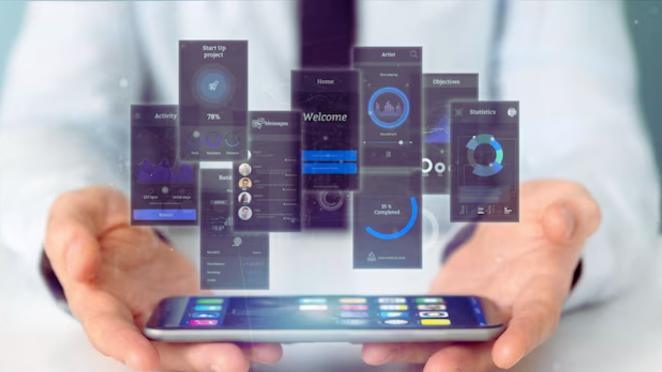Mobile devices have become a ubiquitous presence in our daily lives. From smartphones to tablets, we rely on mobile technology for everything from communication to entertainment. This trend has not gone unnoticed by businesses, and many have already begun to adopt mobile applications to enhance their operations. However, as we look towards the future, the potential of enterprise mobility and mobile application development is vast.
One of the most significant changes we can expect to see in enterprise mobility is the increased use of wearable technology. Smartwatches and other wearable devices have already begun to make an impact in consumer markets, and we can expect to see this trend continue in the enterprise sector. Wearables have the potential to transform how employees interact with business applications, enabling them to access information quickly and easily from their wrists.
Another significant development in enterprise mobility is the use of augmented reality (AR) and virtual reality (VR) technologies. These technologies offer a new way to interact with data, making it possible to visualize complex information in new and exciting ways. For example, an employee could use AR glasses to view a 3D model of a product before it is manufactured, allowing them to make design decisions more quickly and accurately.
The rise of 5G networks will also have a significant impact on enterprise mobility. With faster and more reliable connectivity, businesses will be able to provide employees with access to critical data and applications, regardless of their location. This will enable remote workers to be more productive and connected to their colleagues in the office.
In terms of mobile application development, we can expect to see an increased focus on the user experience. As mobile devices continue to become the primary way that employees interact with business applications, it is essential that these applications are intuitive and easy to use. Developers will need to focus on designing mobile applications that are both functional and aesthetically pleasing.
Another trend in mobile application development is the use of artificial intelligence (AI) and machine learning (ML) technologies. These technologies can help businesses automate routine tasks, such as data entry, and provide personalized recommendations to users. They can also help businesses gain insights into their operations, allowing them to make better decisions based on data.
Finally, we can expect to see an increase in the use of low-code and no-code development platforms. These platforms allow developers to build mobile applications quickly and easily, without needing to write complex code. This will make it easier for businesses to develop and deploy mobile applications, even if they do not have an in-house development team.
In conclusion, the future of enterprise mobility and mobile application development is bright. With the continued rise of wearable technology, AR and VR, 5G networks, and AI and ML technologies, businesses will have more tools at their disposal to improve their operations. Developers will need to focus on creating intuitive and aesthetically pleasing mobile applications that provide users with personalized experiences. With the help of low-code and no-code development platforms, businesses of all sizes will be able to take advantage of these new technologies and stay ahead of the competition.
